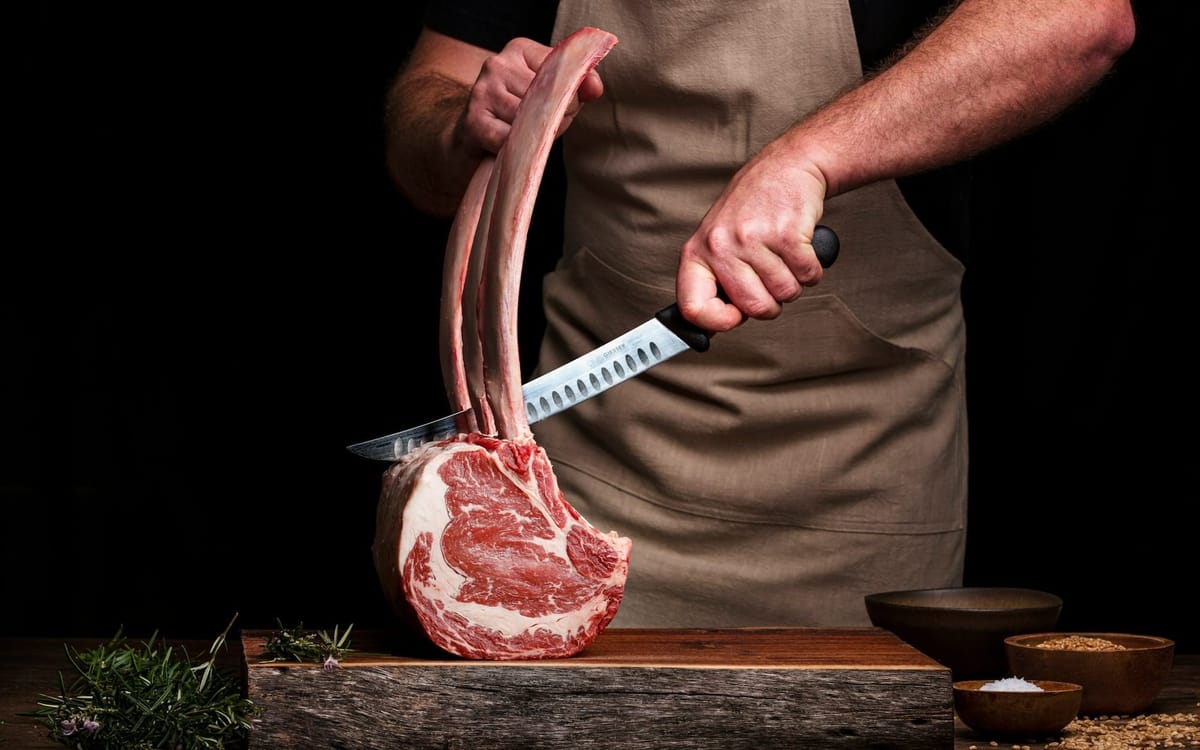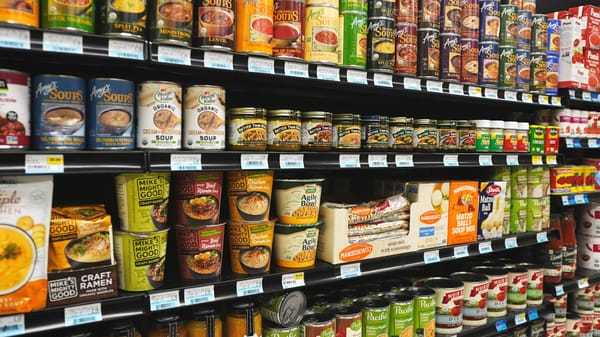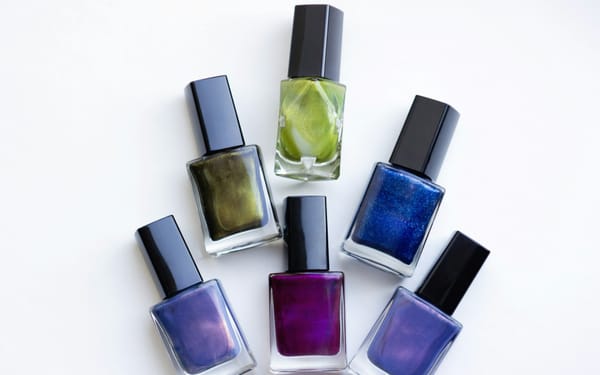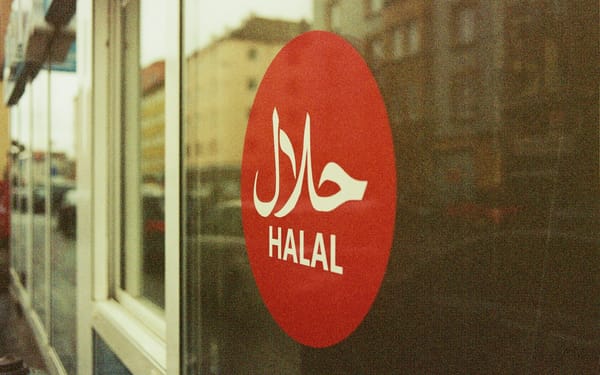What Your Butcher Won't Tell You About Halal vs Regular Meat

Your butcher might not mention this, but there's a reason the global halal meat market is exploding - projected to reach USD 1,638 billion by 2033. It's not just about religious compliance anymore; it's about quality, ethics, and peace of mind.
As Muslims living in the West, we've always known halal is what's required for us. But what many don't realize is that halal meat offers genuine advantages over regular meat that even non-Muslims are starting to recognize.
The Halal Advantage: More Than Just Religious Compliance
Halal meat represents a complete system of ethical food production that puts animal welfare, cleanliness, and quality at its core. The word "halal" means permissible, but the process ensures so much more.
Every halal animal must be healthy at slaughter - no sick or diseased animals allowed. The slaughter method, called dhabiha, requires complete blood drainage while invoking Allah's name, creating meat that's not only spiritually pure but often superior in quality.
Regular meat focuses primarily on speed and efficiency. Animals can be processed while stressed or even sick (as long as they pass basic inspections), and there's no spiritual or ethical framework guiding the process.
Why Halal Slaughter Actually Produces Better Meat
The Islamic slaughter method isn't just about following religious law - it creates measurable benefits.
Complete blood drainage is a game-changer. When blood is thoroughly drained (as required in halal slaughter), it removes toxins, harmful bacteria, and impurities that can affect taste and shelf life. Many consumers report that halal meat has a cleaner, less metallic taste.
Animal welfare protocols in halal slaughter require treating animals with compassion. Animals must be given water, can't witness other slaughters, and the knife must be incredibly sharp for the swiftest possible cut. This reduces stress hormones that can make meat tough and affect flavor.
Meanwhile, regular slaughter often uses stunning methods that can stress animals or even cause improper bleeding if not done perfectly.
The Certification Advantage: Higher Standards Across the Board
Here's what's remarkable: halal certification creates a level of oversight that regular meat processing simply doesn't have.
Halal certifiers conduct regular inspections of facilities, verify ingredient sources, and ensure no cross-contamination with forbidden substances. This means halal meat facilities often maintain higher cleanliness standards than required by law.
Studies show that 60% of Muslim consumers actively check for halal certification, creating market pressure for authentic, high-quality products. Compare this to regular meat where consumers rarely know anything about the processing standards.
For families interested in starting halal businesses, this quality advantage is opening doors in mainstream markets.
Health Benefits That Science Supports
While halal and regular meat have similar nutritional profiles, the halal process offers distinct health advantages.
Superior blood drainage reduces bacterial growth potential. Research shows that inadequate bleeding (more common in rushed industrial processing) can lead to faster spoilage and higher bacterial counts.
Stress-free slaughter matters more than you might think. When animals are stressed, they produce hormones like adrenaline and cortisone that can affect meat tenderness and taste. Halal's emphasis on calm, respectful slaughter often results in higher-quality meat.
Stricter ingredient controls mean halal processed meats won't contain pork-derived additives, blood products, or other forbidden substances that regular meat products might include.
For those following healthy Ramadan practices, knowing your meat is processed to the highest standards matters.
The Growing Recognition: Even Non-Muslims Are Choosing Halal
Here's something your butcher might not admit: non-Muslim consumers are increasingly choosing halal meat by choice, not necessity.
Major retailers like Walmart and Costco are expanding halal sections not just for Muslim customers, but because consumers associate halal with higher quality and ethical treatment. In the UK, 15% of all meat sold is halal - far exceeding the Muslim population percentage.
Why? Because word is spreading about halal's emphasis on animal welfare, cleanliness, and careful processing. When you find halal restaurants or halal fast food chains, you'll often see diverse customers who simply prefer the quality.
Investment in Quality: Why Halal Costs More (And Why It's Worth It)
Yes, halal meat averages 20% more than regular meat in the US. But here's what you're actually paying for:
Smaller-scale, careful processing instead of industrial speed-focused operations. Hand-slaughter takes time and skill, but produces superior results.
Continuous oversight through Islamic certification bodies that regular meat doesn't require. This means consistent quality control.
Higher-quality sourcing because halal processors can't use diseased or inferior animals. Many halal operations specifically seek out better farms and healthier livestock.
For Muslim families managing Islamic finance principles, this premium represents an investment in both spiritual compliance and superior quality.
The Spiritual Dimension: Food With Meaning
Beyond all the practical benefits, halal meat offers something regular meat never can: spiritual significance.
When we eat halal, we're participating in a system that begins with gratitude to Allah and recognition that the animal's life has sacred value. The required invocation of Allah's name transforms eating from mere consumption into an act of worship.
This spiritual dimension brings peace of mind that no amount of quality control in regular meat processing can match. For families preparing traditional Ramadan dishes or celebrating Eid traditions, this meaning enhances every meal.
Making the Switch: What This Means for Your Family
The evidence is clear: halal meat offers tangible advantages over regular meat in quality, ethics, and spiritual value.
When shopping for halal meat:
- Look for established certification bodies (IFANCA, HMA, ISA)
- Ask your butcher about their specific halal standards
- Remember that the premium price reflects genuine quality differences
- Consider the long-term benefits for your family's health and spiritual well-being
Whether you're new to incorporating Islamic practices or looking to deepen your commitment to halal living, choosing halal meat over regular alternatives is an investment in your values and your family's wellbeing.
The Clear Choice
The choice between halal and regular meat isn't just about religious obligation - it's about choosing superior quality, ethical treatment, and food with genuine spiritual meaning.
As the halal market continues to grow and gain mainstream recognition, more families are discovering what Muslims have always known: when you choose halal, you're choosing something better. Not just different - actually better.
Your butcher might not tell you all this, but now you know. The next time you're at the meat counter, you can make your choice with confidence, knowing you're getting the best for your family, InshAllah.





